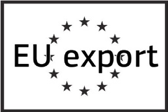On 1 July 2019, the Regulation 2019/933 related to the Supplementary Protection Certificate (SPC) for medicinal products, entered into force throughout the European Union, by which Regulation 469/2009 regarding the SPC for medicines (SPC Regulation) is amended. This new regulation adds, among others, various subsections to article 5 of the SPC Regulation, which deals with the effects of the Certificate, which according to its first section essentially consists in granting the same rights as those granted by the basic patent.
According to the new section 2 of article 5 of the SPC Regulation, by way of derogation from section 1, the SPC shall not confer protection against the following acts related to the product/ medicine protected by said SPC:
(i) manufacturing for the purpose of export to third countries, including related acts that are strictly necessary for that purpose;
(ii) manufacturing for the purpose of storing in order to place said product/medicine on the market of Member States after the expiry of the SPC, including related acts that are strictly necessary for that purpose. This exception is not applicable before the six-month period prior to the expiry of the SPC.
Those exceptions will only be applicable when certain conditions are met, which include:
(i) that the manufacturer has provided the information required by the SPC Regulation (new section 5 of article 5) both to the authorities of the Member State of manufacture and to the SPC holder at least three months in advance;
(ii) that the manufacturer has provided the information required by the SPC Regulation (new section 9 of article 5) to all those involved in the commercialization of the product/medicine; and
(iii) that the manufacturer has added to the product packaging the following specific logo provided for in the Regulation (new annex I), which clearly indicates that the product is intended for export only:

The new section 10 of article 5 includes important rules regarding the temporary application of these exceptions by providing that, initially, they will apply only to the SPCs applied for on or after 01.07.2019. In a second moment, from 02.07.2022, those exceptions will also apply to those SPCs that have been applied for before 01.07.2019 and that take effect from that date onwards. In no case shall they apply to SPCs that take effect before 01.07.2019.
According to the press release from the EU Council, these exceptions will foster the competitiveness of EU manufacturers of generic and biosimilar medicines, removing the competitive disadvantages faced by EU-based manufacturers of generics and biosimilars vis-à-vis manufacturers established outside the EU in global markets.
The press release also explains, giving a clue as to the reasons that led to the adoption of the new regulation, that an increase in the market share of generic and biosimilar medicines is taking place and that it is expected that in the year 2020 these medicines will represent 80% of all medicines by volume, and about 28% by value. In addition, it is reported that in the next ten years there will be an increase in net annual export sales of well in excess of 1 billion euros, which could translate into 20 - 25 thousand new jobs over that period.
